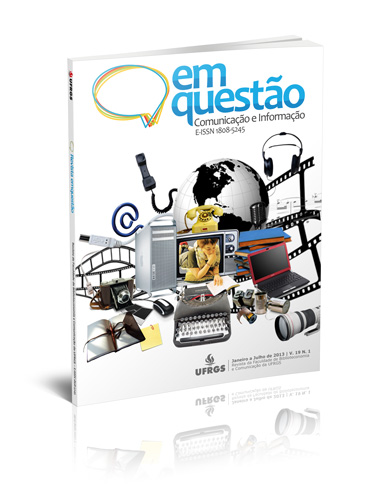Context, objectivity and sensationalism in the journalistic coverage of rights of children and adolescents
Keywords:
Journalism. Social rights. Children and adolescents. Citizenship.Abstract
The actual policies for preserving rights of children and adolescents in Brazil follow the international legal framework and are considered an advancement in several respects. One of the factors which may contribute to their consolidation is the symbolic representations of social rights constructed by the media. This paper describes the results of research which comprised frame analysis of 130 news stories about that subject from the newspaper Folha de S. Paulo, which tends to embrace the ideal of journalistic objectivity, and Agora São Paulo, which explores appeals that may be considered sensationalist within the scientific literature, from July 2010 to December 2010. We assessed the presence of a variety of sources and information on public policies, from sources such as the Statute of Children and Adolescents as well as data and perspectives necessary for contextualizing the facts in the news coverage. Based on empirical data, we argue that the appeal of sensationalist news was found more frequently associated with superficial journalistic coverage of rights of children and adolescents. But the differences between newspapers are small, and the lack of information is distributed similarly in respect of certain aspects between them, suggesting the persistence of sensationalism as a concept of moderate validity for explaining differences of editorial profiles.Downloads
Downloads
Published
How to Cite
Issue
Section
License
Copyright (c) 2013 Danilo Rothberg, Aline Cristina Camargo

This work is licensed under a Creative Commons Attribution 4.0 International License.
Authors who publish with this journal agree to the following terms:
Authors will keep their copyright and grant the journal with the right of first publication, the work licensed under License Creative Commons Attribution (CC BY 4.0), which allows for the sharing of work and the recognition of authorship.
Authors can take on additional contracts separately for non-exclusive distribution of the version of the work published in this journal, such as publishing in an institutional repository, acknowledging its initial publication in this journal.
The articles are open access and free. In accordance with the license, you must give appropriate credit, provide a link to the license, and indicate if changes were made. You may not apply legal terms or technological measures that legally restrict others from doing anything the license permits.









